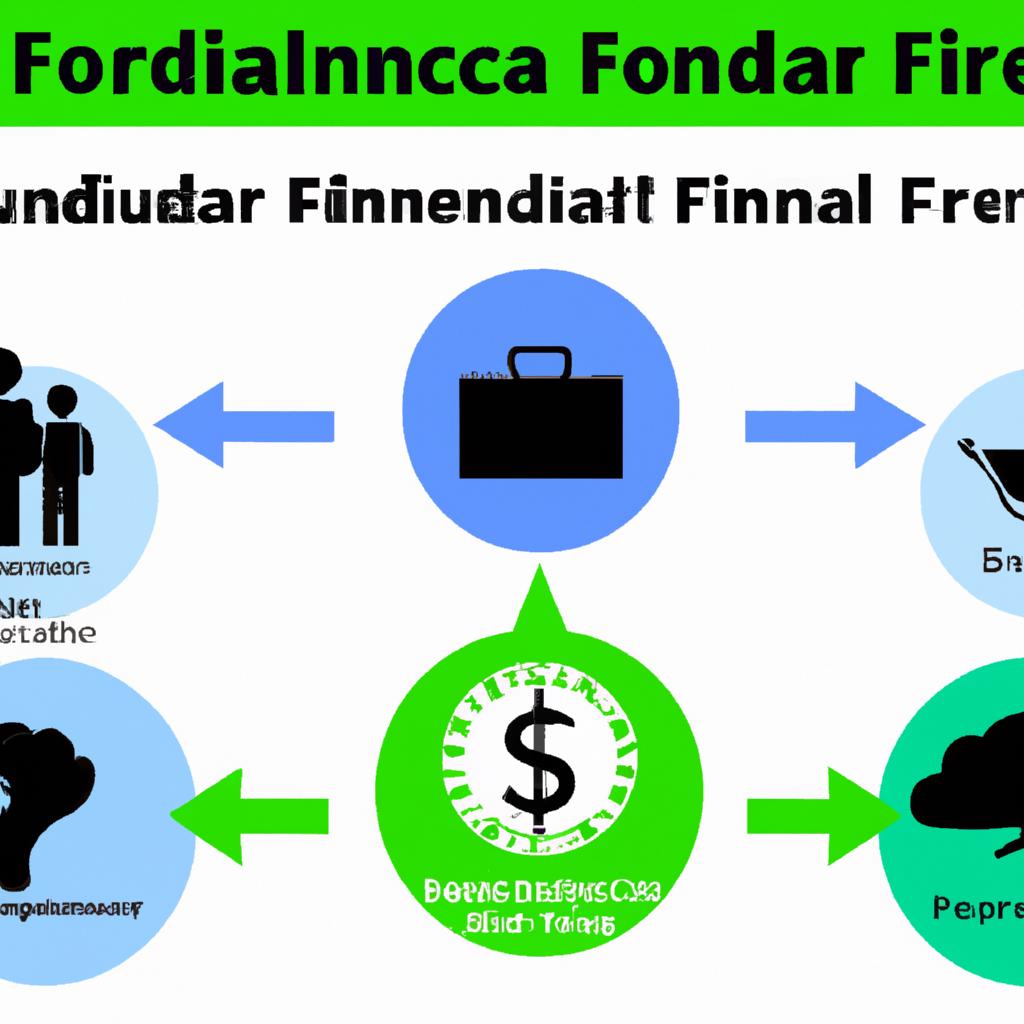In the somber realm of funeral arrangements, the question of financial responsibility looms large for many families. When a loved one passes away with limited resources to cover final expenses, the burden of paying for a funeral can be overwhelming. In this article, we will unpack the complicated issue of who ultimately foots the bill in such circumstances. As seasoned experts in estate planning and probate matters, the Morgan Legal Group in New York City is well-equipped to navigate the nuances of these delicate decisions. Join us as we delve into the legal intricacies surrounding the payment of funerals when there is no money to be found.
– Legal Responsibilities for Funeral Expenses when the Deceased has No Funds
In cases where the deceased has no funds to cover their funeral expenses, the responsibility typically falls on the next of kin or relatives. It is important to note that funeral expenses are considered a priority debt, meaning they must be paid before any other debts of the deceased are settled.
However, if no family members are able or willing to cover the costs, there are other options available. Some states have programs in place to assist with funeral expenses for individuals who cannot afford to pay. Additionally, crowdfunding or donations from charitable organizations can also help cover the costs of a funeral for someone who has no funds.

– Potential Sources of Funding for Indigent Funerals in New York City
When a loved one passes away without any means to afford a funeral, it can be a challenging situation. In New York City, there are potential sources of funding available to help cover the costs of indigent funerals. These options include:
- City Assistance Programs: New York City offers burial assistance programs for individuals and families who are unable to afford funeral expenses. These programs can help cover the costs of a basic funeral service.
- Nonprofit Organizations: There are nonprofit organizations in the city that provide financial assistance for indigent funerals. These organizations may have specific criteria for eligibility, so it’s important to reach out and inquire about their services.
It is important to explore all available options and resources to ensure that your loved one receives a dignified farewell. Our team at Morgan Legal Group can provide guidance and support during this difficult time.

– Considerations for Seeking Assistance with Funeral Costs
If you find yourself in a situation where there is no money available to cover funeral costs, it can be a challenging and stressful time. However, there are options available to help alleviate some of the financial burden. Here are some considerations for seeking assistance with funeral costs:
1. **Government assistance programs**: Look into government programs that may provide financial assistance for funeral expenses. These programs vary by state, so be sure to research what options are available in your area.
2. **Crowdfunding**: Consider setting up a crowdfunding campaign to help raise funds for the funeral expenses. Websites like GoFundMe can be a great way to reach out to friends, family, and the community for support.

- Ensuring Proper Handling of Estate Assets to Cover Funeral Expenses
In the event that there are no funds available to cover funeral expenses, it is essential to explore alternative options to ensure the deceased receives a proper send-off. One option to consider is utilizing any assets within the estate to cover the costs. This may include selling personal valuables, liquidating investments, or even utilizing life insurance policies if available. By carefully reviewing the estate assets and determining the most appropriate course of action, it is possible to ensure that the funeral expenses are covered without placing undue financial burden on the family.
Additionally, seeking assistance from government or charitable organizations can also provide a solution for covering funeral expenses when no funds are available. Some resources may be available to help offset the costs of a funeral, such as burial assistance programs or funeral grants. It is important to research these options and determine if the deceased may be eligible for any financial assistance. By exploring all available avenues, it is possible to ensure that the deceased receives a dignified funeral even in the absence of immediate funds.
Q&A
Q: What happens if a person dies with no money to pay for a funeral?
A: When a person passes away without leaving enough funds to cover funeral expenses, families may be left wondering who is responsible for the costs.
Q: Is it the responsibility of the deceased person’s family to pay for the funeral?
A: In most cases, the responsibility falls on the deceased person’s family to cover the costs of the funeral. However, if the family is unable to pay, there are other options available.
Q: What options are available for families who cannot afford a funeral?
A: Families who cannot afford a funeral may be eligible for assistance from government programs or local organizations. Some funeral homes also offer payment plans or discounted services for those in financial need.
Q: Are there any legal obligations for paying for a funeral?
A: In some states, there may be laws in place requiring family members to cover the costs of a loved one’s funeral. However, these laws vary by jurisdiction and are not always strictly enforced.
Q: What should families do if they cannot afford a funeral?
A: Families who are unable to afford a funeral should reach out to funeral homes, local government agencies, or non-profit organizations for assistance. It is important to explore all available options and resources to ensure a proper send-off for a loved one, regardless of financial circumstances.
Q: Can families fundraise to cover funeral costs?
A: Yes, organizing a fundraising campaign or seeking donations from friends, family, and the community are common ways for families to raise funds for a funeral. Online platforms like GoFundMe can also be used to collect donations.
To Conclude
In conclusion, navigating the financial responsibilities of a funeral can be a daunting task, especially when faced with the question of who will foot the bill if there are no funds available. While there are options available, such as assistance programs and community support, the burden of paying for a funeral without money ultimately falls on the shoulders of those closest to the deceased. It serves as a reminder of the importance of planning for the inevitable and ensuring that loved ones are not left to bear the cost alone. In times of hardship, it is the support and compassion of others that can make all the difference.
 Who Pays for Funeral if No Money? Understanding Your Options
Who Pays for Funeral if No Money? Understanding Your Options
The loss of a loved one is a difficult and emotional time for families. In addition to dealing with the grief and mourning, there are also financial aspects that need to be considered, such as arranging a funeral. While most people understand the importance of having a proper funeral to honor their loved one, the cost of a funeral can be overwhelming, especially if there are no funds available. In this article, we will explore who pays for a funeral if there is no money and provide valuable information to guide you through this challenging time.
Understanding the Costs of a Funeral
Before we dive into who pays for a funeral if there is no money, it is essential to understand the costs associated with a funeral. A funeral typically includes the following expenses:
– Funeral director’s fees
– Casket or urn
– Transporting the body
– Embalming or cremation
– Headstone or grave marker
– Venue for the funeral service
– Clergy or celebrant fees
– Flowers and decorations
– Obituary notices and memorial cards
– Death certificate and other legal fees
According to the National Funeral Directors Association, the average cost of a funeral in 2019 was $7,640, and this cost is expected to rise in the coming years. With such a significant amount, it is understandable why many families are concerned about who will cover the expenses if there are no funds available.
Options for Paying for a Funeral
When dealing with a loved one’s death, many families may not have the financial resources to cover the funeral expenses. In such cases, there are several options available to help pay for the funeral, such as:
1. Payment from the deceased’s estate
If the deceased had any assets, such as property, bank accounts, or life insurance policies, the funeral expenses can be paid using those funds. In such cases, the executor of the estate would be responsible for paying the funeral costs before distributing any remaining funds to the beneficiaries.
2. Low-cost funeral options
There are often lower-cost funeral options available, such as direct cremation or immediate burials, which can help reduce the overall cost. These options typically have no additional services, such as embalming or a viewing, which can significantly impact the cost.
3. Crowdfunding or donations
With the rise of online fundraising platforms, many families have turned to crowdfunding to gather funds for the funeral. This option allows family and friends to contribute to the funeral expenses, easing the financial burden.
4. Government assistance
In some cases, the government may provide financial assistance to families who are unable to cover the costs of a funeral. This assistance may be available through funeral assistance programs or through the Social Security Administration if the deceased was a veteran.
5. Prepaid funeral plans
Some individuals may have purchased a prepaid funeral plan before their death, which includes funds to cover the funeral expenses. In such cases, the funeral home will handle the arrangements, and the expenses will be covered by the prepaid plan.
Consequences of Not Paying for a Funeral
While it may be tempting to avoid dealing with the funeral expenses altogether, there are consequences to not paying for a funeral. Depending on the state you live in, there may be laws that require the family to provide a proper burial for the deceased. If the family refuses to pay for a funeral or is unable to do so, the local authorities may step in and handle the arrangements. In some cases, the funeral costs may be recovered from the estate or beneficiaries of the deceased.
Additionally, not providing a proper funeral for a loved one can also have emotional consequences for the family. A funeral allows for closure and the opportunity to say a final goodbye, and not having one may hinder the grieving process.
Practical Tips and Additional Resources
Dealing with a loved one’s death can be overwhelming, and the added stress of arranging a funeral when there are no funds available can make it even more challenging. Here are some practical tips to help you navigate this difficult situation:
1. Shop around for the best prices
Funeral costs can vary significantly depending on the funeral home, so it is crucial to shop around and compare prices. Don’t be afraid to ask for a detailed breakdown of the costs and negotiate for a better price.
2. Consider cremation
Cremation is often a more cost-effective option compared to a traditional funeral. It also allows for the ashes to be kept at home or scattered in a meaningful location, which can be a comforting option for many families.
3. Look into government assistance programs
The Social Security Administration offers a one-time payment of $255 towards funeral expenses for individuals who qualify. Additionally, some states offer funeral assistance programs for families who are financially unable to cover the cost of a funeral.
The Bottom Line
Losing a loved one is never easy, and the added financial burden of arranging a funeral can be overwhelming. However, it is essential to understand that there are options available, and your loved one deserves a proper farewell. By planning ahead and exploring all available options, you can honor your loved one’s life without adding undue stress to your grieving process. If you are facing financial difficulties, don’t hesitate to reach out to resources such as government assistance programs or crowdfunding platforms to help ease the burden. Remember, your loved one’s memory is priceless, and a meaningful funeral can be a beautiful way to honor their life.

